Lagos, Nigeria, 28th February 2018 – On Friday, 23rd February, I ordered a Freetel ICE 2 phone from Yudala, now one of Nigeria’s biggest e-commerce platforms, thanks to their acquisition of former e-commerce giant, Konga.
The Freetel ICE 2 Phone was the promised child of the Google for Nigeria event that held in July, 2017.
My decision to use Yudala was because I could not easily find it on any other Nigerian online store and then, somewhere in my head, I told myself that I was using Konga, a company I have used before and trust(ed).
True to the customer agent’s words they delivered today which was within 2–4 working days on a Payment-On-Delivery (POD) cash option.
Noteworthy: Before Konga’s acquisition they had discontinued the POD option.
My order came in a Yudala branded package with a bonus earpiece and MTN SIM card separate from the actual phone as advertised.
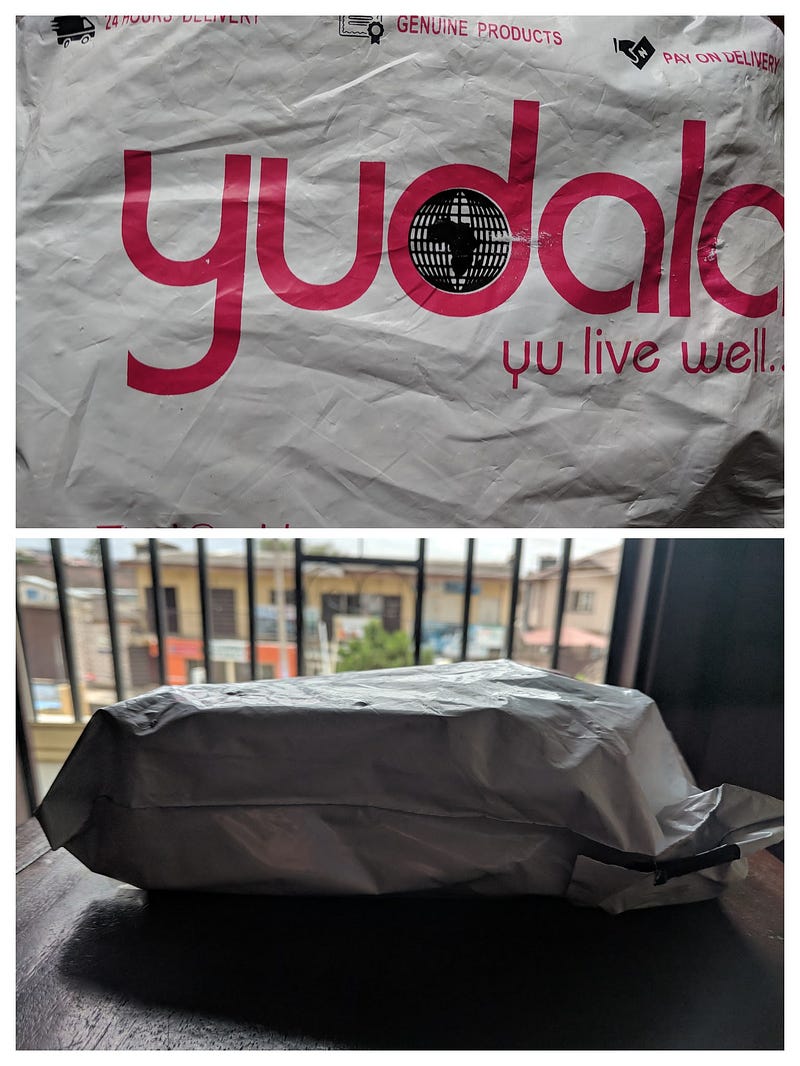
Trivia: The ear-piece looked hurriedly packed, it was not even inside a nylon 🙁
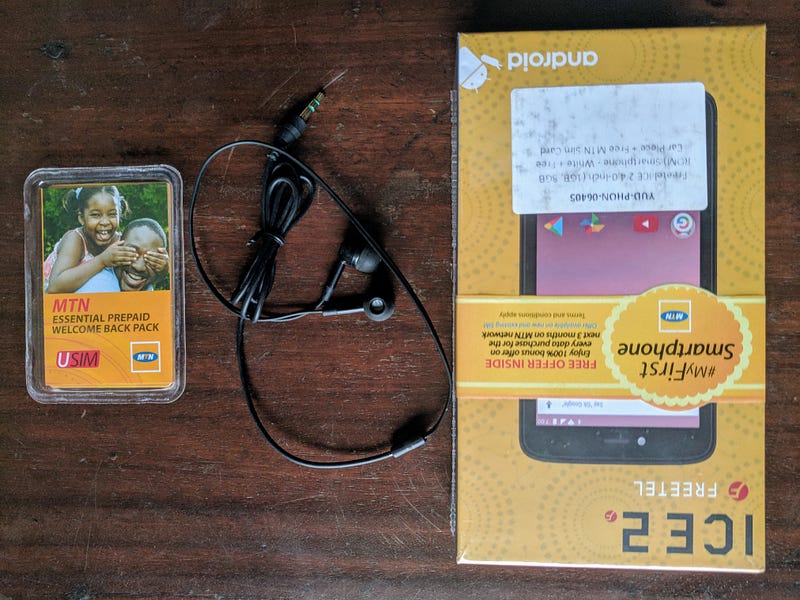
Inside The Phone case
The phone’s packaging spots a colourful design and when it is opened, it contains the following five things:
- the 4-inch Freetel smartphone
- a set-up guide/manual
- a colourful brochure containing 10 android tips
- a power adapter and a USB-A cord
- a removable battery
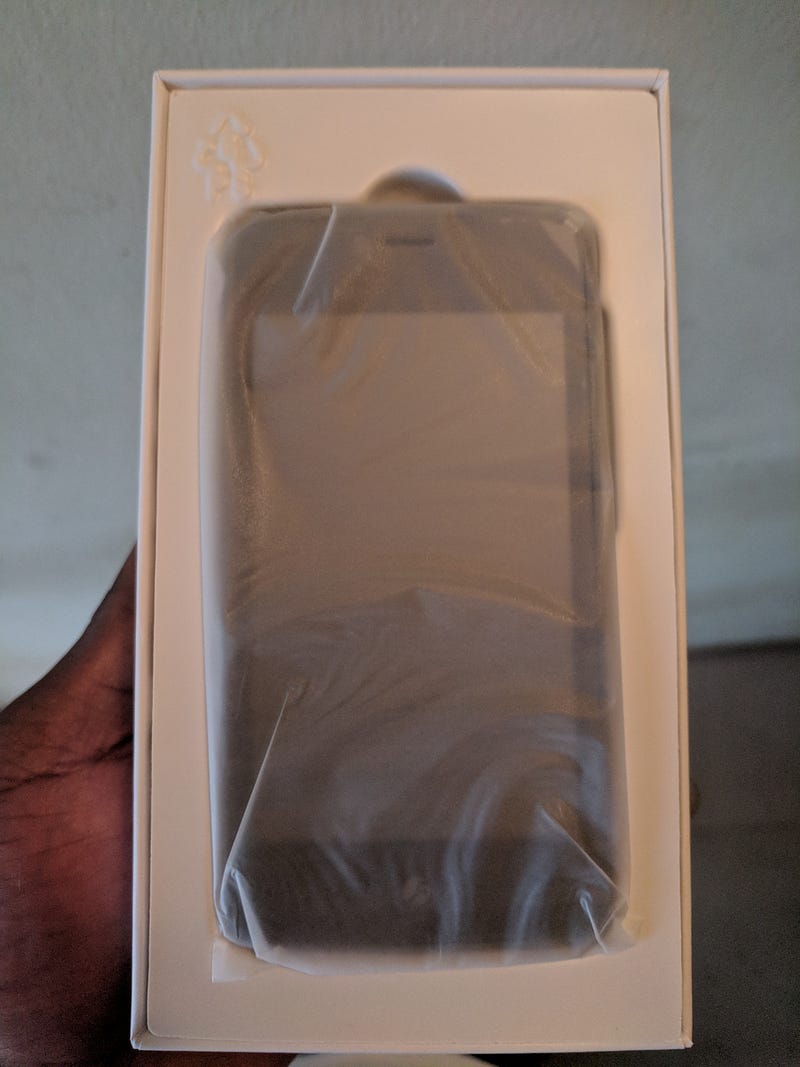
When you take out the phone, here is what you’ll see:
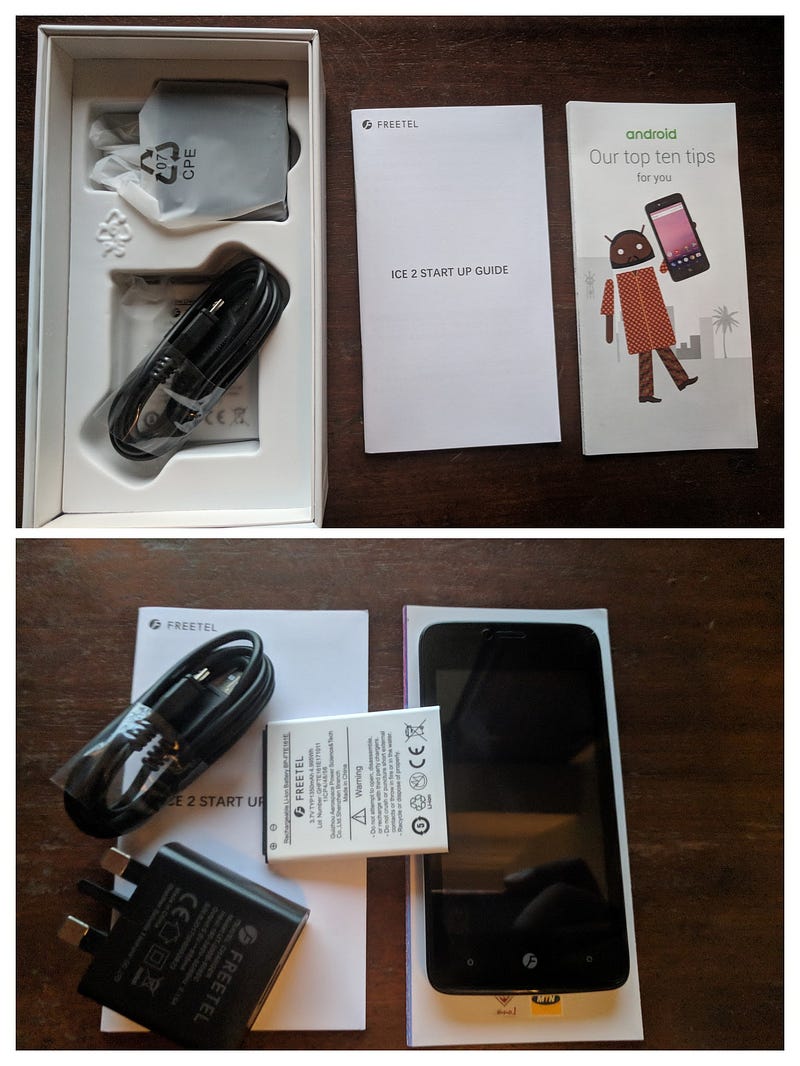
Setting-up
When you open the actual Freetel Phone, you’ll realise it’s a Dual-(micro) SIM phone. Dual-SIM phones are particularly useful in this market because users tend to make the most of the different offerings by the 4 leading Telcos in the country. Particularly, on calls and data purchase. For instance, one could make use of Globacom for mobile internet purposes and MTN for cheaper calls.
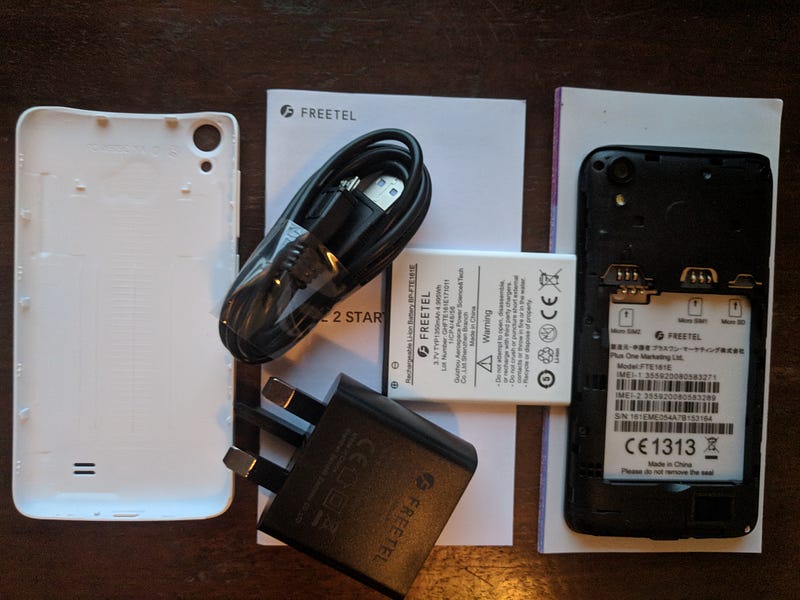
After inserting the 1350mAh removable battery and turning on the device, you’ll realize that it takes an approximate of 22 seconds from phone switch-on to first set-up screen. Subsequently, it takes an even longer time (26 seconds). Comparing this to the quick 12 seconds it takes to load up a Google Pixel. You’ll find the time difference to be remarkable.
Like every other Android-powered phone, you are offered a chance to recover your files or create a new Google account. And what is quite interesting about this is that like the Pixel, Google controls the hardware and software of the phone. Therefore, it is easier to roll-out the latest Android updates and ensures end-to-end security of the device.
Upsides
Currently, the Freetel phone uses the Android 7.0 (Nougat) which places its users in the top 29.6% of Android users making use of the latest version of Android.
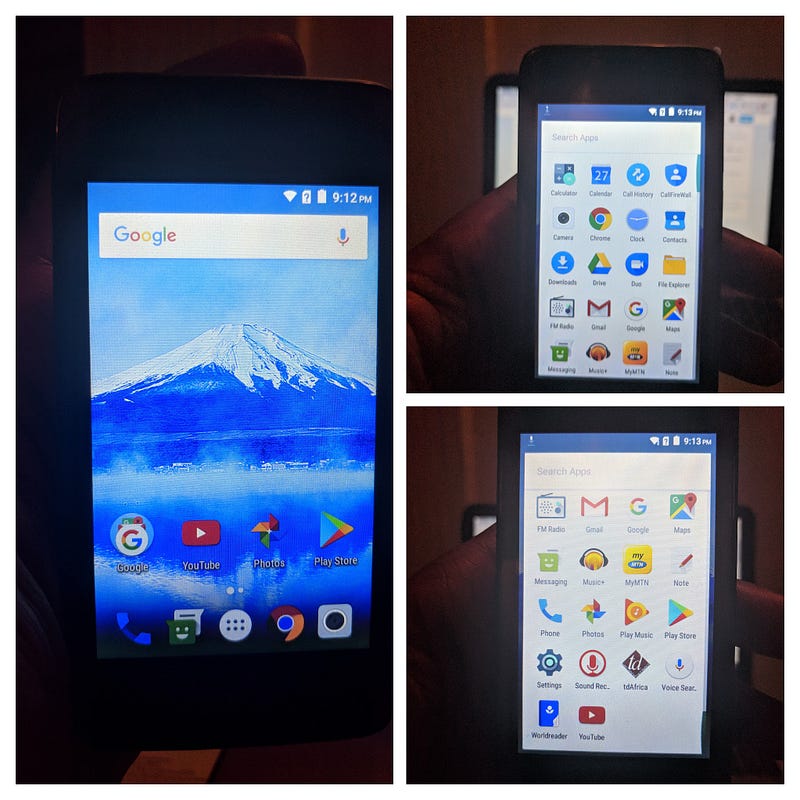
Of the 30 pre-loaded apps I counted on the phone, Google-centric apps like Gmail, YouTube, and Maps made-up 33% of them.
While 2 apps, MyMTN and tdAfrica from partners MTN and TD Mobile respectively are featured on the home screen (pre-loaded).
Bonus: Majority of the Android users in the world are still on the Android 6.0 (Marshmallow)
Regarding security, Google’s security system, Play Protect, regularly scans the apps and devices for harmful behaviour.
And of course, price point, at a price point of $36 it is definitely a unique selling point. Not many phones below the $50 mark can do what it does.
Also, the phone has WiFi capabilities which I think is pretty important, especially as many “high-end feature phones” around the NGN10,000 do not yet support WiFi functionality. For instance, I made use of a Smile router while setting up this device.
Trade-off
Camera — The camera quality on the NGN13,000 Freetel is a complete fail. I would have preferred they didn’t even offer a camera functionality on the phone. The front facing camera of 0.3MP takes photos that could sometimes come out blue.
The 2MP back camera makes you look like a shadow, it is a mess.
Compare this to the greater than 100x-better Google Pixel 12MP camera. But that’s what you get when you pay 18x lesser for a device (the Pixel starts at $649).
Except perhaps you take it outdoors in sunlight.
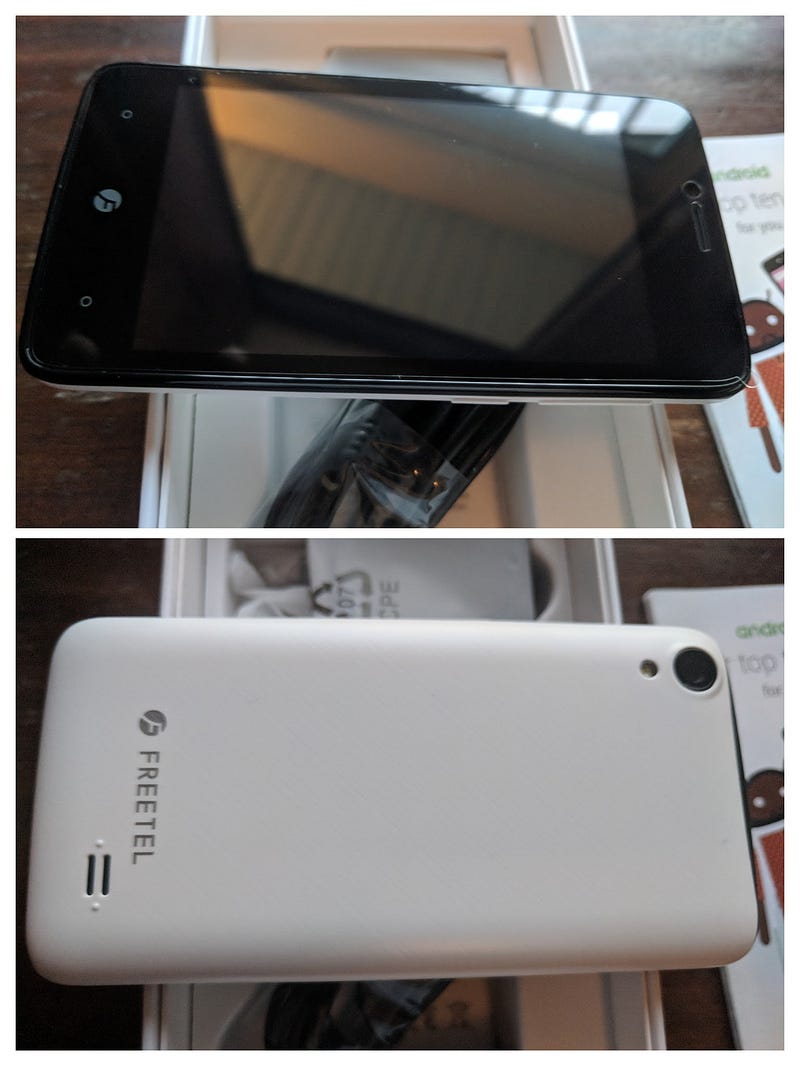
Neutral ground
Speed — with a 1.2 GHz single-core processor, it is pretty quick to respond to touch. Or maybe, my bad experience with my former Infinix hot note 1 made me set low expectations. In comparison, the Infinix phone was $88.64 (NGN32,000) in 2016 when I bought. So, one should expect two times the performance of the Freetel. But I doubt that’s the case.
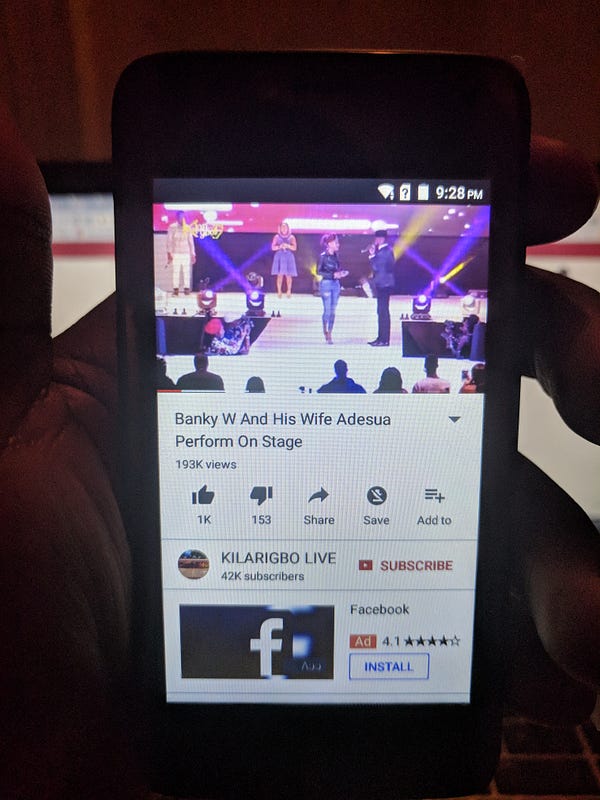
Battery — for people coming from a feature phone background like the Nokia 3310 which can last an entire day of use. A 1350mAh Lithium-Ion battery could be a huge turn-off. Unlike the revamped Nokia 3310 with a 1200mAh battery with a talk time of 22hours and fewer apps running in the background, it will probably last about the same time as the Freetel smartphone even though it has a lower capacity.
YouTube (YT) — Unlike other feature phones with blurred displays, the YouTube display is typical of most Android smartphones. And performs other YT-specific functionalities like fast-forwarding a video.
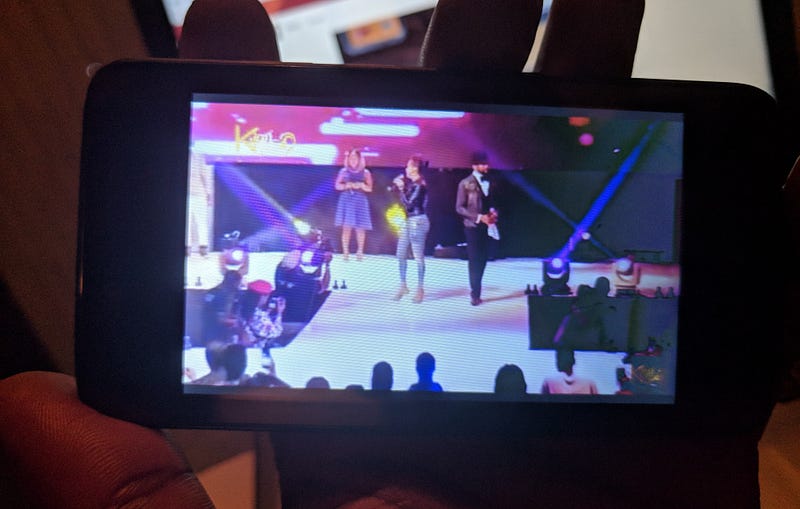
Raised eyebrows — no social apps pre-installed
In a communal society like Nigeria, where Whatsapp and Facebook are greatly used, it’s noteworthy that the phone doesn’t come bundled with those two social apps.
Currently, Google doesn’t have a product that can adequately compete with FB-owned social apps like Whatsapp and Messenger. So, I do not immediately see a conflict-of-interest aside the fact that creating a partnership that works might be a little tricky between Internet giant, Google and Social media giant, Facebook.
They could probably have added those apps and included it in their marketing materials.
In a country where people pay NGN500 to an “Engineer” in Computer Village to add their favourite apps to their newly acquired phone, this could have gone a long way to incentivise people to purchase or even consider the phone as their next low-end phone buy.
Final words
The Google Freetel phone is a usable phone and a suitable entry-level smartphone to people with a low-budget.
It can perform all the functionalities required of a typical smartphone at an above average level.
However, it doesn’t have a camera (sarcastically).
But come to think of it, will you be willing to pay more for camera improvements?
A more detailed version of this article containing a background story on “why Freetel, why Nigeria and why now” is on my blog.






